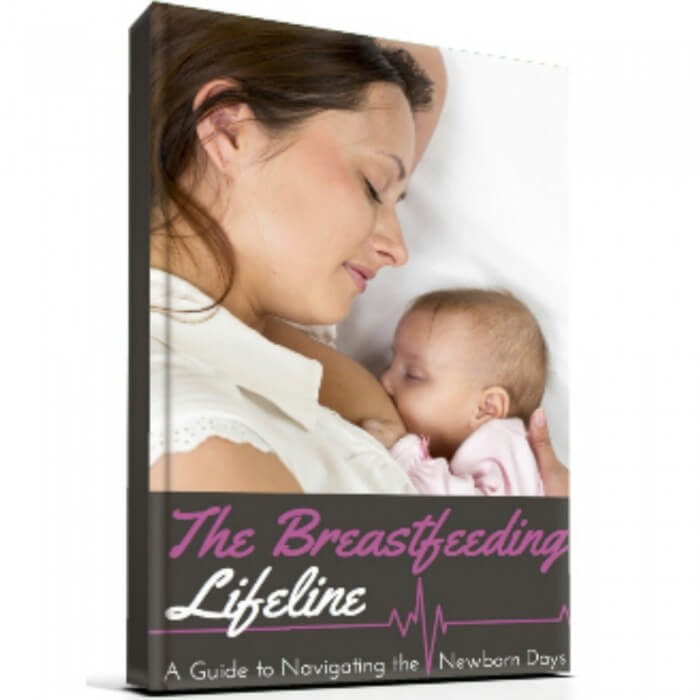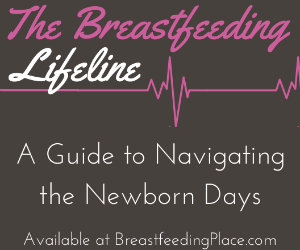 Can breastfeeding and thyroid disease work together? At the age of 10, I was diagnosed with hyperthyroidism from Grave’s Disease. I’ve been poked, prodded, radiated, and tested for over 25 years to keep my thyroid levels where they need to be. With all this time invested, I was never told how my thyroid condition might affect my breastfeeding relationship with my children. I was never told anything about how thyroid function affects anything other than heart rate and metabolism.
Can breastfeeding and thyroid disease work together? At the age of 10, I was diagnosed with hyperthyroidism from Grave’s Disease. I’ve been poked, prodded, radiated, and tested for over 25 years to keep my thyroid levels where they need to be. With all this time invested, I was never told how my thyroid condition might affect my breastfeeding relationship with my children. I was never told anything about how thyroid function affects anything other than heart rate and metabolism.
I’d like to share with you what I have learned about thyroid disease after having three children in four years and how it can affect breastfeeding. I’ll focus on chronic thyroid disease in this post and will address temporary postpartum thyroiditis in a future post.
Disease Types
There are two main types of chronic thyroid disease: thyroid malfunction and autoimmune disease. Thyroid malfunction includes hypothyroidism, hyperthyroidism, and nodules or growths.
Autoimmune disease is when the body attacks itself and causes malfunctions. The two most common autoimmune thyroid disorders are Grave’s Disease and Hashimoto’s Thyroiditis.
Disease Treatments
While there are numerous causes and types of thyroid disorders, there are a few main treatment protocols. Doctors may choose to medicate to reduce thyroid function for hyperthyroidism. Doctors may medicate to replace thyroid hormone for hypothyroidism. Doctors may choose surgery for nodules or growths or chronic thyroid over-activity. Doctors may choose to use radioactive iodine treatment to kill the thyroid without removing it through surgery in cases of hyperthyroidism.
Many of the treatment options are safe for the breastfeeding mother. Be sure to talk with your doctor to be sure before proceeding. The information below is for educational purposes only. Only you and your doctor can decide what is right for you.
- Medications for hyperthyroidism – Methimazole/Tapazole is one of the first medications used to reduce thyroid function. This medication is generally considered not safe while breastfeeding. It has the potential to cause reduced thyroid function or goiter in nursing babes. Mothers who use this medication while nursing will need to have their baby tested for thyroid function quite regularly – as often as every three months. Large amounts of Methimazole/Tapazole cross into the milk. Propylthiouracil (PTU) is another option for a hyperthyroid medication. Only small amounts pass through into breastmilk. Many doctors and lactation professionals feel that PTU is relatively safe while breastfeeding as long as the baby’s thyroid function is tested every three months. Use of this drug is still quite controversial, though. The use of antithyroid drugs come with a small risk of other autoimmune diseases such as lupus and arthritis. Most hyperthyroid patients will be on antithyroid medication for a short time until the thyroid can be reduced or killed through surgery or radioactive iodine. Hormone replacement is much safer than these medications.
- Medications for hypothyroidism – Synthroid/levothyroxin/armour thyroid/naturethroid are thyroid hormone replacements. All thyroid hormone replacement medications are safe while breastfeeding. They pass poorly into breastmilk, so if baby needs thyroid hormone, he would need to take it himself rather than rely on levels in mother’s milk. Thyroid hormone levels should be well controlled while breastfeeding to ensure that mother does not become hyperthyroid as that poses greater risk to her milk supply and to her baby’s thyroid health.
- Surgery – Surgical correction of hyperthyroidism is generally tolerated well for the breastfeeding mother. Many are able to nurse shortly after waking from surgery depending on the medications used. Thyroid hormone levels need to be closely monitored following surgery as they will fluctuate a great deal until optimal levels are reached. Mom should be aware that her milk supply may be affected by these fluctuations as both extreme hyper- and hypo-thyroidism can cause milk supply problems.
- Thyroid Scans – Because radioactive iodine is used for thyroid scans, nursing mothers should seek an alternative testing method. Radioactive iodine stays in the system for weeks following the scan and can affect baby’s thyroid levels. If a thyroid scan is done, it is generally recommended to not breastfeed for 2 weeks or more following the scan.
- Radioactive Iodine – This treatment is often used for Grave’s Disease patients and after surgery for patients with thyroid cancer. Mothers who receive radioactive iodine should not breastfeed because baby’s thyroid can be affected.
Breastfeeding and Thyroid Disease: Supply
An imbalanced thyroid can cause milk supply problems. Personally, I have noticed a dip in supply when I am hyper and when I am hypothyroid. If levels get far enough away from normal, milk can all but dry up. Thankfully, in most cases, milk supply returns to normal or near normal levels once hormone levels are adjusted. (Read about increasing your milk supply during these times: “6 Tips on How to Increase Breast Milk Without Supplementing.)
It is a good idea for all mothers to have their thyroid checked at their 6 week postpartum check up. Mothers with a history of thyroid disease may want to have their level checked immediately after birth and then every three months.






Have you ever taken tapazole while breastfeeding? Did it affect your supply?
I have not taken tapazole while breastfeeding. You can check safety through lactmed toxnet or Dr. Hale’s Infant Risk Center as well as asking your endocrinologist. Since when thyroid levels are out of the normal range milk supply is affected, I would think that tapazole, when properly prescribed, would help maintain supply. Again – I’m not a medical doctor or giving medical advice!
So, you would say that if thyroid disease is well-controlled, a new mom should have no problems with low milk supply (unless it’s for another reason)?
I’m asking because I basically had a breast pump shoved in my face with my first baby, with everyone saying I NEEDED to pump immediately from the get-go because of my thyroid disease (Graves Disease, but treated with radiation and now on levothyroxine), even though it was well-controlled. Pumping starting that early was horrid and I think it actually caused a lot of problems with mastitis etc. I would totally rather just feed my baby for the first week or so, and then worry about pumping as needed.
If you are well controlled, you shouldn’t have much problem with supply. My experience was that with the postpartum weight loss, it was tricky to stay well controlled. I had to be tested often. After my first, I just got tested every 4 weeks for the first year and was fine. I probably didn’t need to test that often, but I was paranoid!
My experience was this- I had graves’ in remission until 4 months postpartum and my milk was late coming in and my supply was low. I had gestational diabetes because of steroids from premature labor and then I was induced for two days before delivery and both of those could have contributed to my late low supply. At 3 months postpartum, I was finally able to breastfeed exclusively.
Tapazole so far hasn’t affected my supply. Yey!
My daughter is 5 months old and I am now only pumping 3 times a day. I have Hashimotos and since giving birth and breastfeeding my levels have become borderline over active!?!? I was shocked! I’m taking a much smaller amount of levothyroxine than before I got pregnant and even stopped taking for a couple days because my heart was racing. How does breastfeeding effect overall thyroid levels in your experience?
It’s the whole postpartum hormonal rollercoaster experience that affects thyroid levels. Everyone’s experience is different as well. Every birth different too. All four of my postpartum experiences were different thyroid-wise. Keep a close eye on it for the first year – that’s when things tend to level out again. Congrats on your sweet baby!
My daughter in law has hypothyroidism and was not treated till a year ago. It was in reality, the cause of her infertility which her reproductive endocrinologist refused to believe. My son pushed to have her put on meds to get her Tsh levels under 1 (we both did lots of research and appalled this is not looked into first when pregnancy isn’t happening – 3 years of trying and hormones pumped into her- and telling her she was perimenopausal!)
Last month, they gave birth to a beautiful baby girl who had meconium aspiration. Rushed to the Nice for 5 days and 5 days of antibiotics. She returned home with my daughter in law nursing (in the hospital she got Similar as well) we noticed after a week the baby was fussy. – Gassy- could not Burp well. Poops sometimes were blow outs. Two weeks later, being at times on formula because she seemed hungry and nursing wasn’t enough, he had green poops. We are big into research since the pediatrician didn’t seem as proactive as we liked. She was put on Nutramigen and did fantastic. Slept well…was a whole new contented baby. My daughter-in-law stopped all dairy, gluten and soy from her diet since the baby’s symptoms seemed classic for milk protein intolerance. She intoricednbreast milk several times and the baby became fussy again – all symptoms,s returned. She was clean for two weeks and began nursing (such a good momma- she kept pumping the whole time). The first few days were great till she began nursing fully yesterday. The baby was not as bad as before but fussy and took No good naps!!
My daughter in law is on Synthetic (100 mcg 2 x a week and 50 mcg 5 x a week) She got blood work two weeks ago. Found her Tsh level was very low. It hasn’t been changed yet cause her Ob wants her to wait tI’ll her hormones from pregnancy drop.
We are at a loss to know why the baby has problems still with breast milk. You can see the milk in her mouth when she nurses. Help!!!!!
Any number of things could be the issue. Baby could have an allergy to a food that the mother hasn’t removed from her diet. We would recommend you check with your child’s pediatrician or your primary care provider, and continue to do your research. Sounds like you’re doing great so far!
I have been hypothyroid prior to my first pregnancy. I, like you, had 3 pregnancies in 4 years and nursed all my babies. I have recently weaned my third and have had two periods this last month (the first period I have had in 6 years due to pregnancy and bfing). I can’t lose weight. My skin is dry but that’s not unusual. I’m EXSAUSTED. All symptoms of my thyroid being off.
So, does weaning really affect TSH levels that much?
How long did it take to regulate yours from weaning?